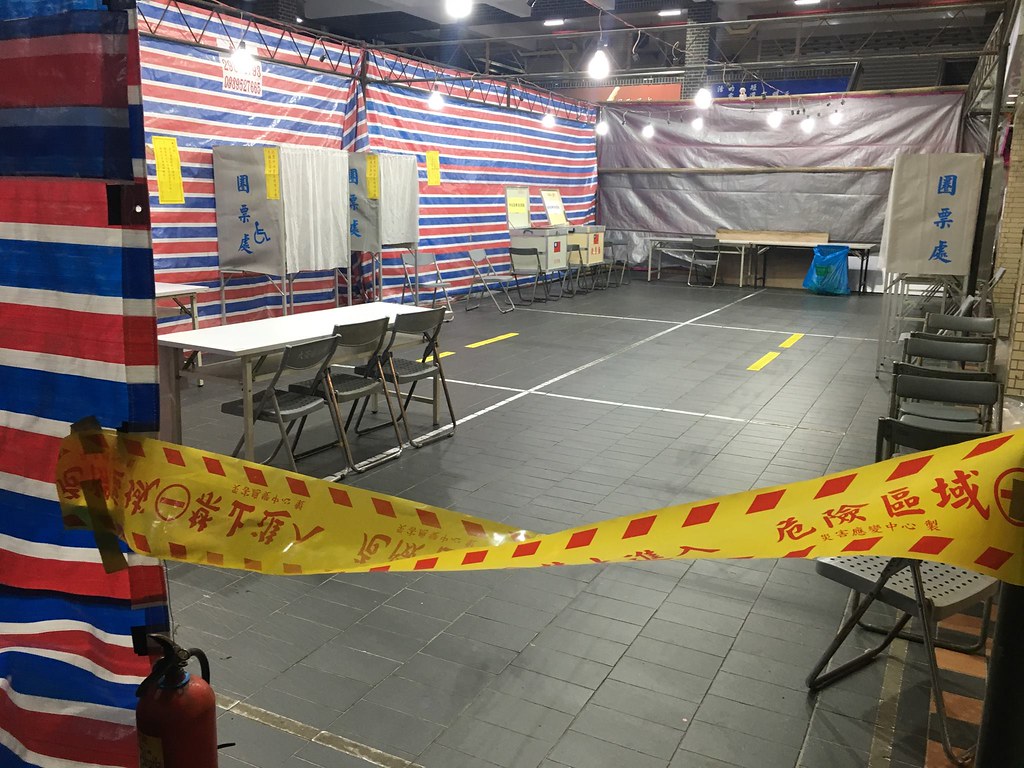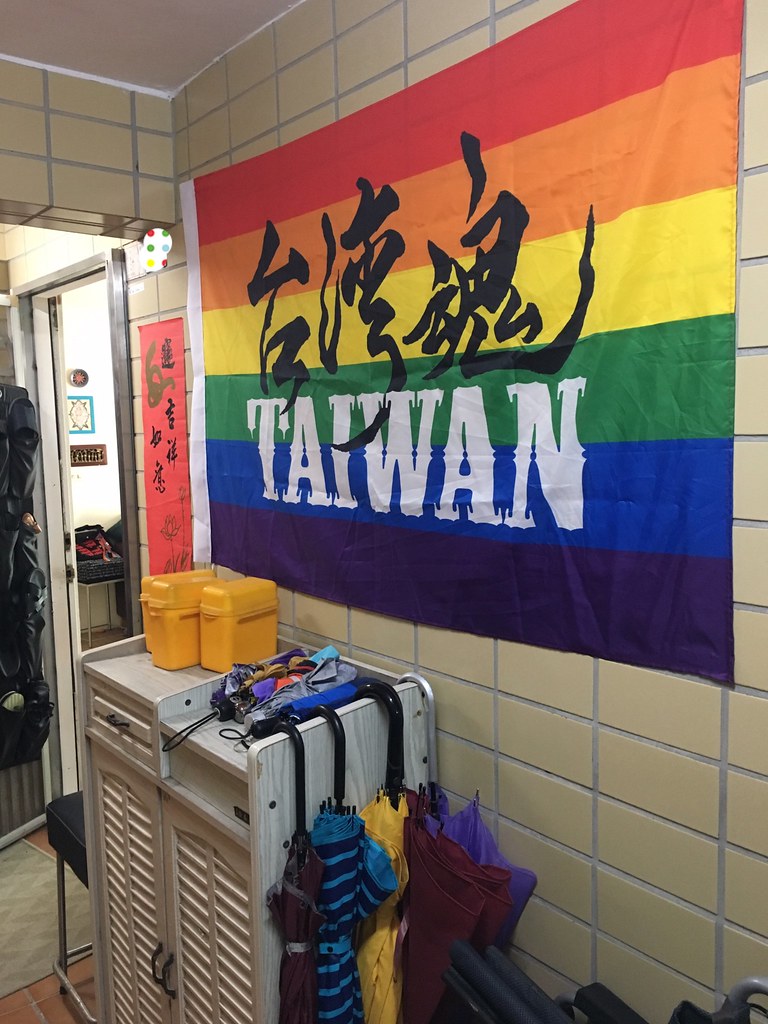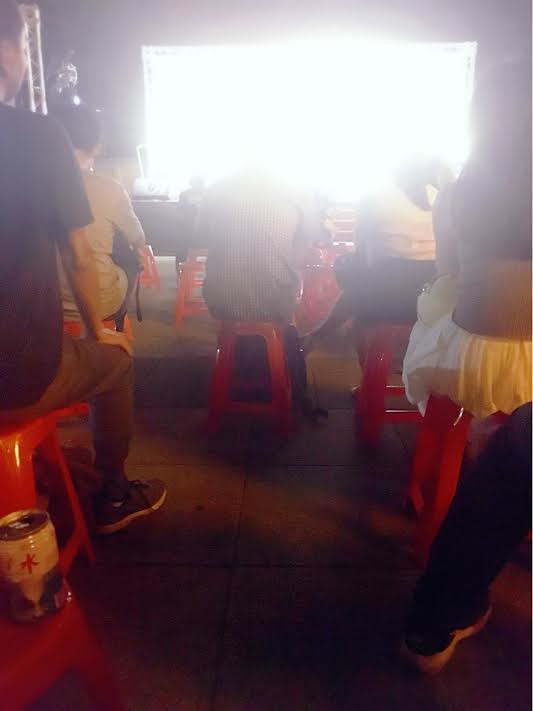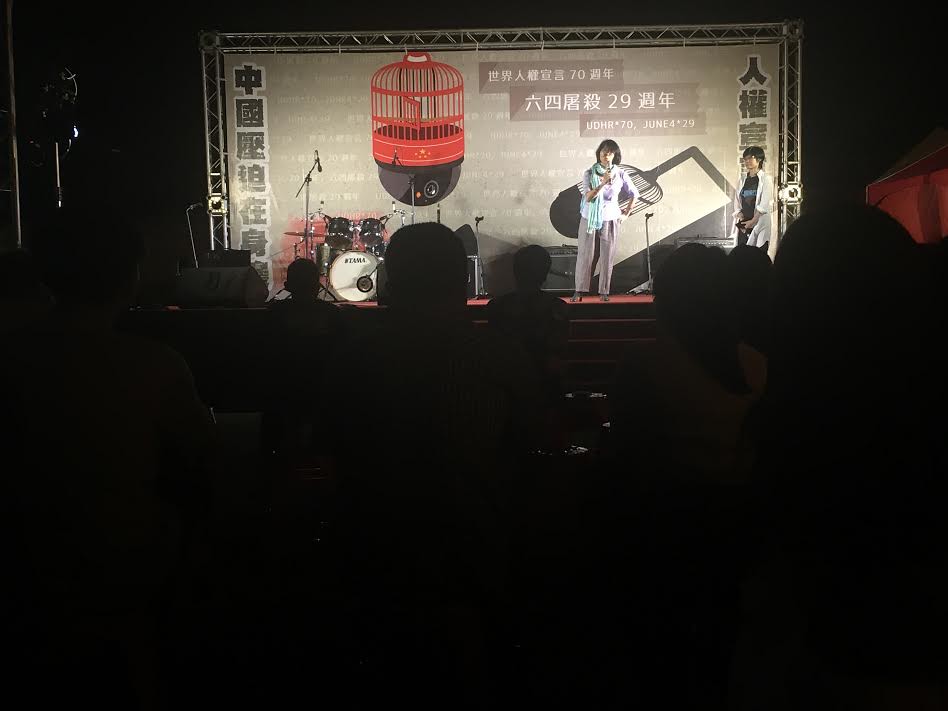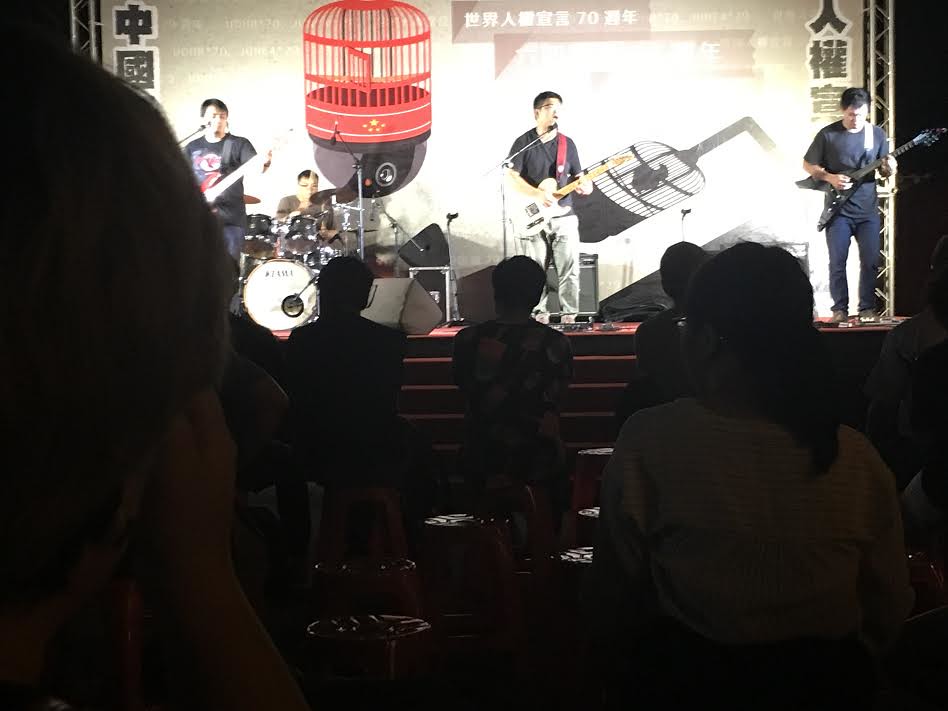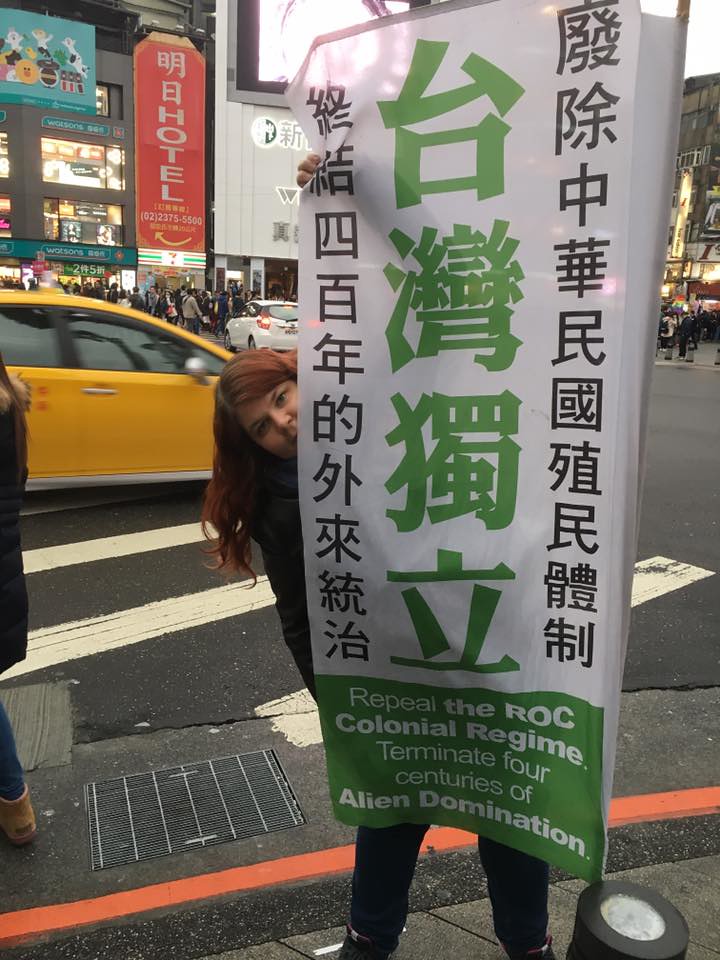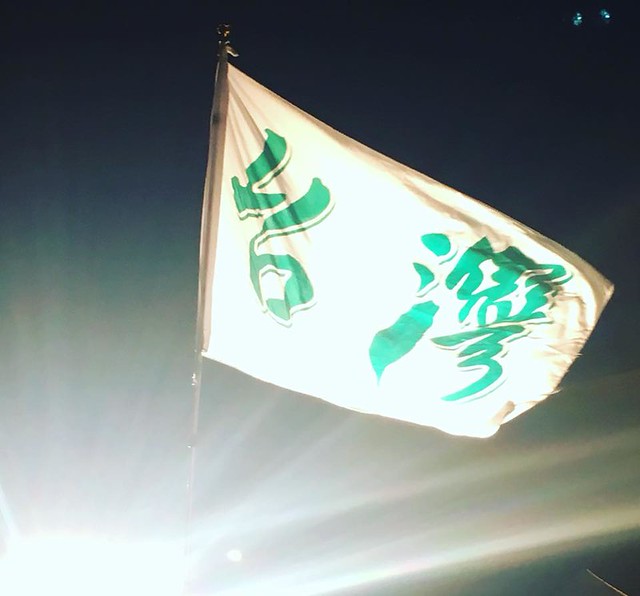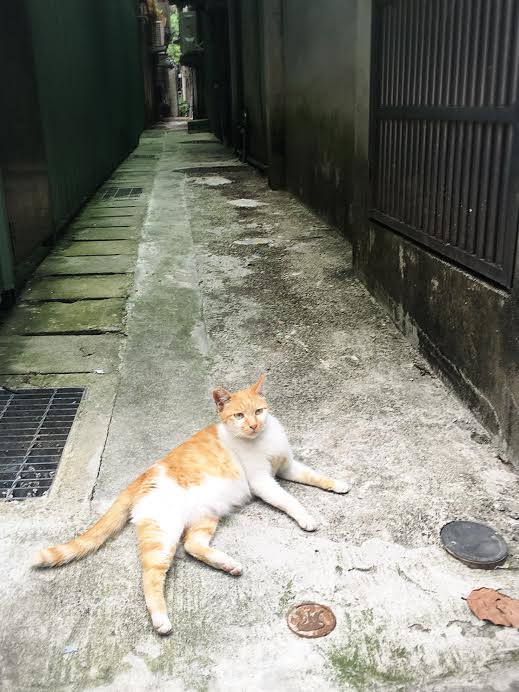 |
| This man is not your maker. (image from Wikimedia, with my embellishment) |
I mean, that should go without saying, but I feel I have to state it obliquely - you simply should not trust Foxconn CEO and businessjerk Terry Gou (郭台銘).
When he says things like "Taiwan shouldn't buy defensive weapons from the US" because:
- "no parent wants to see their child die on the battlefield"
- "why should Chinese fight other Chinese?"
- "if you have no knives or guns, who will want to fight you?"
- the arms that Taiwan buys from the US are "secondhand" (which is apparently not entirely true)
...this is all you need to know about why he should not be the next president of Taiwan.
Gou (4/28): No parent wants to see child on battlefield, so we should develop hi-tech arms & AI [e.g. drones]...and make peace our shield: not provoking, not fearing. Why would Chinese fight other Chinese? (為何中國人要打中國人?) Can use $ saved on R&D.https://t.co/3lPStciIB9— ジェームス (@jmstwn) April 28, 2019
Let's look first at his "why should Chinese fight other Chinese?" line.
What struck me is how closely it echoes something Xi Jinping himself said not that long ago: "中國人不打中國人" or "Chinese don't attack other Chinese".
Why would Terry Gou echo Xi's own words? That's a rhetorical question: this is no intricate strategy or game of 4D chess in which he's looking to outfox Emperor Xi. His echo is not so much a dogwhistle as a clarion call, saying "Hey China, I'm your guy". When Gou says it, he doesn't mean it any differently from the way Xi intended it just a few months ago.
That's not even getting into how such a phrase assumes both sides are "Chinese", so it isn't a justification for a certain policy of 'peace' in defending Taiwan so much as just saying outright that Taiwan is a part of China anyway, so why fight? Second, the historical illiteracy such a comment assumes is downright offensive. Forget ancient dynastic wars in China (which were almost always between groups of Chinese) - the 1940s is ample-enough proof that Chinese do, in fact, fight Chinese before we even involve Taiwan in the discussion. He didn't even use the term for being culturally/ethnically Chinese (華人). He used the term that implies that Taiwanese are one part of a country called China (中國人). There's nothing to misinterpret here.
Don't believe for a second that his "we should invest in high-tech weapons instead" is sincere, either. It doesn't square with anything else he's said on the subject (if you have high-tech weapons, by definition you are not fostering a dialogue of diplomacy and peace by "not having guns or knives" - instead, you have the fanciest guns and knives money can buy). High-tech weapons on Taiwan's side aren't going to determine how many Taiwanese die fighting in the event of war with China: that'll be determined in part by what China throws at us. And, of course, why would you need R&D into high-tech weaponry if "Chinese shouldn't fight other Chinese"? Taken on its own, his "high-tech defense" comment is reasonable-ish (ish), but in the full context of everything he's said, it's nonsense. Smoke and mirrors. Best set aside as insincere at best, actively deceptive at worst.
Don't fall into the trap that some have and try to claim that he's somehow playing a long game with Taiwan's enemies and will ultimately not obey them. This is a joke. His comments about defense are exactly what Beijing wants to hear - he is positioning himself as their man, floating these turds to the Taiwanese public to see if any of them are mistaken for policy insight. In order to be someone who could talk to China without selling out Taiwan, he'd have to fundamentally care about the sovereignty and democratic norms of Taiwan. He's already proven he doesn't with his comments that "you can't eat democracy" and his implicit, Beijing-echoing language choices (above) that Taiwanese are "Chinese".
Besides, even if he did care about Taiwan's sovereignty (which he doesn't), what bargaining chips would he have against China as a politician? When it comes to Taiwan...Taiwan is the bargaining chip. Either you sell it out or you don't. In any case, China is not a partner with which one can make a good-faith deal with Taiwan. To imply it is possible is to essentially say "I'm fine with selling this country's future to an unscrupulous negotiating partner."
This mythos of a candidate being more than they seem - smarter, cannier, more insightful, with more intricate strategic aims that mere mortals cannot comprehend - has been tried on before. I've seen people apply it to Taipei's Mayor Ko Wen-je (turns out Ko is just a sexist jackass who can't even keep his own comments straight, whose words have also echoed Xi's, to undetermined but probably not good ends). Of course it's been applied to Donald Trump as well. Do I even need to go there?
Don't believe he's somehow above the fray because he has a business to run: every time someone points out problems with the words he uses, he accuses them of "quoting him out of context" and then, at least in the case of President Tsai, attacks them with the same level of maturity as a 14-year-old online troll.
Of course, she didn't take his comment out of context. "民主不能當飯吃" is quite clear and can't be misinterpreted "out of context"- it does not mean "democratic momentum must be converted into economic gains" as he now claims. That's a made-up interpretation, and it is just plain not what he said. He knows that, he meant it then and he means it now. He's just a jackass.
Terry Gou is not a master dealmaker who has a well-thought-out plan for continued peace in Taiwan: he is a petulant, sexist man-child. There's no more there there. It's the plain truth of who he is.
Don't believe him when he says his other comments were misinterpreted, either. When he said "if you have no guns and no knives, who will attack you?", that is what he meant, and not some other thing. He did not mean "the defense budget should be spent on the 'sharp edge of the knife,' such as developing indigenous high-tech weaponry" as he now claims.
He's not making brilliant, nuanced points that others are consistently failing to understand. He's floating turds and then yelling at people who call a turd what it is, insisting that his turds are in fact golden nuggets and we plebes just didn't understand the first time around. They're not, and we didn't. Don't be fooled.
Don't fall into the same morass as the media, either, taking what is quite clear - that he thinks Taiwan doesn't need defensive weapons - and turning into a massive bubbling crapfest of truthiness that utterly fails to get to the heart of the matter.
Don't pull a Bloomberg and fail to report that Gou's strongest claim was that Taiwan should not buy defensive weapons, instead spinning it into an article about how he wants to strengthen defense. Don't take that garbage one step further and cast doubt on whether the Taiwan Strait is international waters through dubious language (if you're not clear, the Taiwan Strait indeed counts as international waters. There was no need to imply that Tsai was somehow wrong about this. Shame on you, Bloomberg.)
Don't take Gou's re-jiggered comments as the truth of what he initially said, as Asia Times did, either. Gou did not say "we should spend wisely". He said "if you don't have guns or knives, who will attack you?" and "why should Chinese fight other Chinese?"
Don't. Just don't. Don't buy it. Don't make him into another Trump. Don't defend his floating turds. For goodness sake, don't swallow them.
Do the smart thing and take what he says at face value.
Then flush it right down the toilet where it belongs.
Or do what President Tsai and NPP legislator Hsu Yung-ming did, and tell him that when it comes to lowering defenses and promoting peace, to "tell it to China."
I hope this is the last I ever say about him, because I find him about as interesting as Han Kuo-yu, which is to say, not very. All I can hope is that these two get locked in an internecine struggle that tears the KMT apart by 2020. It's the best possible outcome for either of them.

